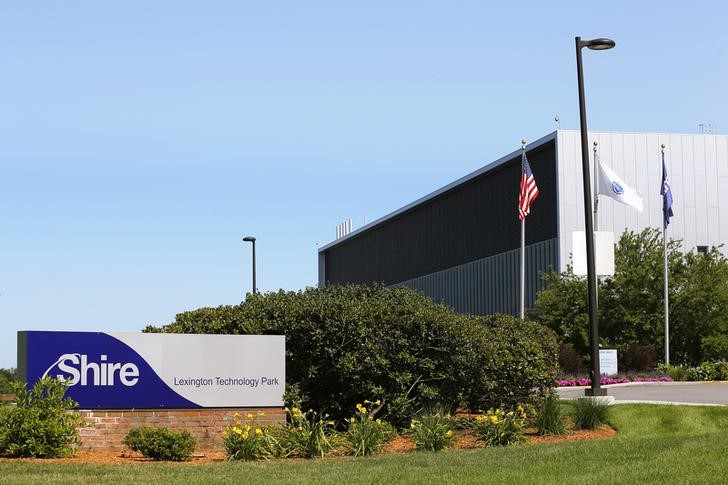By Ben Hirschler
LONDON (Reuters) - Shares in Shire Plc (L:SHP) fell 2 percent on Monday after the U.S. Food and Drug Administration (FDA) decided not to approve its most important pipeline medicine for dry eye disease and asked for more information.
The news is a blow for Shire, which is to trying to buy Baxalta Inc (N:BXLT) to forge the leading global specialist in rare diseases, and has already seen the value of its all-share offer, initially worth $30 billion (19 billion pounds), fall by more than a fifth.
Flemming Ornskov, Shire's chief executive, said he was "disappointed" but his company continued to plan for a potential 2016 launch of lifitegrast. It will have data from a Phase III trial later this year that could satisfy the U.S. regulator.
"If the study is positive, we plan to refile our liftegrast submission in the first quarter of 2016, and will remain on track for the planned lifitegrast launch next year," Ornskov said in a statement.
The Irish company announced the setback in the all-important U.S. market late on Friday. Industry analysts view lifitegrast as a potential $1 billion-a-year-plus seller, making it an important future driver of Shire profits.
Jefferies analysts said the FDA decision to issue a so-called complete response letter was likely a temporary setback. Such letters are sent out to let a drug developer know a marketing application will not be approved in its present form.
"We continue to assume lifitegrast will be approved, partly because the FDA has effectively indicated the only other prescription drug on the market (Allergan's (N:AGN) Restasis) has marginal efficacy, setting a relatively low bar," they wrote in a note.
Chronic dry eye syndrome affects the eye's tear-producing glands, causing patients to suffer from blurred vision and an itching or a burning sensation in the eyes.
Shire's stock has been hit both by uncertainty over the Baxalta bid and a wider rout in pharmaceutical stocks, triggered by mounting investor concerns about political pressures on U.S. drug prices.
Shire, as a major producer of treatments for rare diseases, makes some of the most expensive drugs in the world.

There has recently been speculation that Shire might turn its attention from Baxalta to a more manageable target like Radius Health (O:RDUS), which has a market value of just under $3 billion.